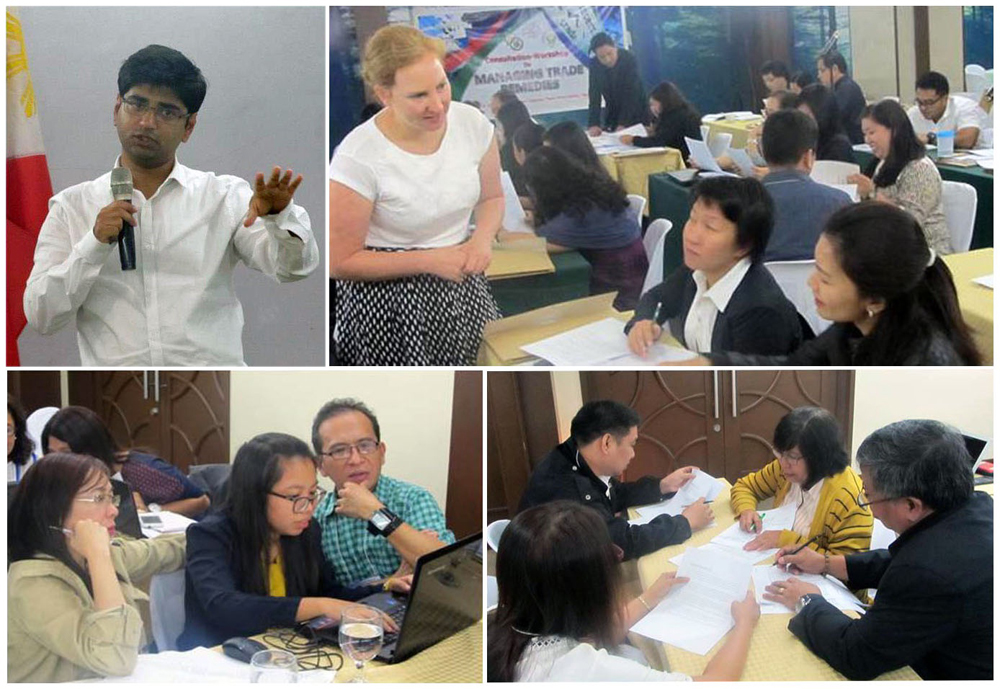In order to propose policy recommendations to address issues on trade remedies in the country, PCAF and the DA- Policy Research Service (PRS) conducted a joint Consultation-Workshop on Managing Trade Remedies on July 26 to 29, 2016 in Tagaytay City.
The Philippines is actively engaged in trading goods and services with other countries, and as a member of World Trade Organization (WTO) since 1995, the country is committed to abide the trade rules set by the organization.
However, despite the international trade rules, there are still instances of unfair pricing in the market that caused threat or injury to our domestic industry.
The undertaking primarily aims to discuss the three substantive and procedural remedies of the WTO Trade Remedies Agreements in the Philippines which are the policy tools that allow government to take remedial action against surge of, dumped, or subsidized imports.
Trade remedies in the Philippines mainly include anti-dumping, countervailing and safeguard measures, and the involved investigation applications, procedures and implementations are governed by the Anti-dumping Act of 1999 (RA 8752), the Countervailing Act of 1999 (RA 8751) and the Safeguard Measures Act of 2000 (RA 8800) respectively.
Anti-dumping is a protectionist tariff on foreign imports that are priced below fair market value while countervailing is a duty imposed to neutralize the negative effects of subsidies. Safeguard measures on the other hand, are meant to be temporary measures that are used in the face of increased levels of imports that have seriously injured or threaten to seriously injure a country’s domestic industry.
Bureau of Import Services (BIS) of the Department of Trade and Industry (DTI) Director Luis Catibayan presented the three enabling rules of the WTO Trade Remedies Agreements to the workshop participants.
Executive Director Ricardo Pinca of the Philippine Association of Flour Millers, Inc. (PAFMIL) discussed the first and only anti-dumping case by the Department of Agriculture (DA). The Philippine flour milling industry thru PAFMIL filed with the DA an anti-dumping petition against Turkish flour because there is a disparity between Turkish domestic flour prices and the flour export FOB prices which is a substantial evidence of dumping.
Lydia Cooke and Sagnik Sinha of the Rules Division of the WTO prepared hands-on exercises on the procedural aspects of trade remedies investigations, e.g. dumping calculation and injury assessment, which elicited positive feedback from the participants.

During the workshop, some issues and concerns were raised. The participants from the private sector aired their issues and concerns among which are: insufficient knowledge of the private stakeholders on the availability and uses of trade remedies. DA inability to properly monitor if the agricultural products are being subjected to unfair trade practices.
They also recommended that the government should intensify its information dissemination on trade remedies to keep them from being subjected to unlawful trade practices and for the DA to enhance its monitoring system of imported agricultural products especially those that are susceptible to illicit trade practices.
These concerns were ably noted by PCAF and PRS to be forwarded to the concerned DA offices and agencies.
The Macro Economic Policy Division (MEPD) of PRS shared that a proposed budget for the Trade Remedies Fund (TRF) has been submitted to the DBM for approval. The fund will be the basis for the creation of a special unit that will monitor and handle trade remedy concerns for agricultural products.











